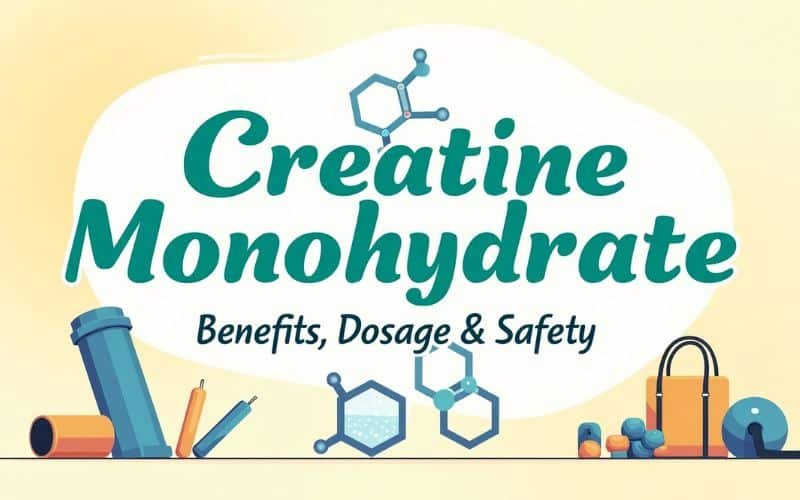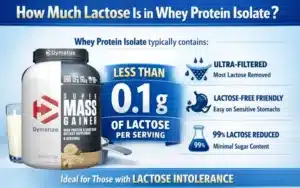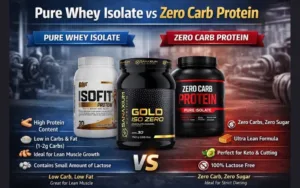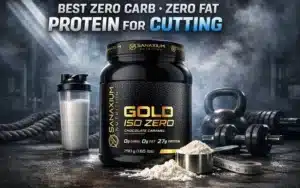No products in the cart.
Return To ShopCreatine Monohydrate: Benefits, Dosage & Safety
Creatine monohydrate is one of the most widely researched and trusted supplements in the world of sports and fitness. Naturally found in small amounts in foods like red meat and fish, creatine plays a critical role in the body’s energy production system—particularly during short bursts of high-intensity activity.
When taken as a supplement, it helps increase strength, enhance muscle growth, improve exercise performance, and may even support brain health. Known for its safety, affordability, and effectiveness, creatine monohydrate remains a top choice for athletes, fitness enthusiasts, and even older adults aiming to preserve muscle and cognitive function.
Benefits of Creatine Monohydrate
Creatine monohydrate is one of the most well-researched supplements, known for its ergogenic (performance-enhancing) benefits. Supplementation increases the phosphocreatine stores in muscles, which helps rapidly regenerate ATP (energy) during high-intensity, short-duration activities. Key scientifically supported advantages include:
Improved Strength and Power:
Creatine consistently boosts performance in strength training and explosive sports. It enhances high-intensity exercise capacity, leading to greater gains in muscle strength and lean body mass during training. For example, a 2024 meta-analysis found that adults who took creatine while weight training gained significantly more upper- and lower-body strength (bench press +4.4 kg, squat +11.3 kg, on average) compared to placebo. The International Society of Sports Nutrition (ISSN) even states that creatine monohydrate is the most effective supplement for adding muscle mass and boosting strength in athletes.
Enhanced Muscle Size and Recovery:
Creatine users often experience an increase in lean muscle mass. Some of this is initial water retention (creatine draws water into muscle cells), but over time it contributes to greater muscle fiber growth alongside training. It may also aid recovery between intense bouts of exercise by reducing muscle cell damage and inflammation (though protein and rest remain primary drivers of recovery).
Better Sprint and High-Intensity Performance:
For activities like sprinting, jumping, or repeated high-intensity intervals, creatine can improve output and reduce fatigue. Athletes supplementing with creatine perform more repetitions at a given weight and have improved sprint times in repeated sprint tests compared to those without creatine.
In contrast, creatine has minimal effect on pure endurance exercise; recent research shows it does not improve, and might even slightly impair, performance in long-duration aerobic activities (e.g. distance running).
Cognitive Function and Brain Health:
Beyond the gym, creatine benefits the brain. Creatine is also stored in the brain where it buffers cellular energy. Supplementation has shown small but significant improvements in memory, attention, and processing speed – especially in populations under stress or with lower baseline creatinine (such as vegetarians and older adults).
A 2024 systematic review of 16 trials concluded that creatine had positive effects on short-term memory and intelligence/reasoning tasks, with the largest benefits seen in females and in individuals with cognitive impairments. Similarly, a recent trial reported that a single high dose of creatine improved cognitive performance during 24-hour sleep deprivation, speeding up reaction time and reducing mental fatigue.
These findings suggest a role for creatine in supporting brain energy metabolism, and ongoing studies are examining its potential in neurodegenerative diseases and depression.
Healthy Aging and General Health:
Creatine may support musculoskeletal health beyond young athletes. In older adults, creatine combined with resistance training helps preserve muscle mass and strength, combating age-related sarcopenia (muscle loss). A 2021 meta-analysis found that seniors doing exercise gained more lean mass and strength with creatine than with exercise alone.
There is also some evidence (though mixed) that creatine could support bone health by enhancing the benefits of resistance training on bone density. While not a miracle cure, creatine’s safety and broad cellular effects have prompted research into diverse areas of health, from rehabilitation after injuries to potential mood improvements.
For example, creatine is being explored as an adjunct therapy in depression (some small studies suggested faster improvement when adding creatine to antidepressants, especially in women), and as a neuroprotective supplement in conditions like traumatic brain injury (with promising results in animal models and preliminary trials).
Side Effects and Safety
Creatine monohydrate is generally very safe for healthy individuals, with a low incidence of side effects reported in clinical studies. It has been used in doses up to 20–30 grams per day in research, and daily 5-10 g use for several years, without clinical adverse effects. That said, like any supplement, it can have some side effects or misconceptions to be aware of:
- Weight Gain: The most common “side effect” is weight gain. Creatine causes muscles to hold extra water (intracellular water retention), leading to an increase of ~1–2% of body weight in the first week of loading. This can make muscles appear fuller. The weight gain is mostly water, not fat. Over time, creatine users may also gain more muscle mass from training, contributing further to weight increase. For athletes in weight-class sports, this water weight is worth considering.
- Gastrointestinal Distress: High doses of creatine at once can cause GI discomfort for some. Doses above ~10 g in a single sitting may lead to stomach cramps, nausea, or diarrhea in certain individuals. This is often mitigated by splitting the daily dose into smaller servings (e.g. 5 g at a time) and ensuring it’s fully dissolved in enough water. Taking creatine with food can also reduce stomach upset. At the standard 3-5 g maintenance dose, side effects are rare.
- Muscle Cramps and Dehydration (Myth): There is a persistent myth that creatine causes muscle cramps or dehydration, but research does not support this. In fact, studies have found no difference in cramping or dehydration between athletes taking creatine and those on placebo. Proper hydration is always important for athletes, but creatine supplementation (if anything) tends to improve water retention and hydration status in muscle cells rather than cause dehydration. Multiple reviews have concluded creatine does not increase risk of muscle cramps or heat illness during exercise.
- Kidney Function Concerns: Creatine was once suspected to strain the kidneys because it can slightly elevate creatinine (a blood marker used to estimate kidney function). However, extensive studies – including long-term trials up to 5 years – show no adverse effect on kidney or liver function in healthy individuals using recommended dosages. The ISSN 2021 review emphasizes that creatine is not associated with kidney damage in people with no pre-existing kidney conditions. Important: If someone has existing kidney disease, they should consult a doctor before using creatine (as with any supplement). The mild rise in creatinine is harmless in and of itself, but can confound lab tests if the clinician isn’t aware of supplement use.
- Hair Loss (Uncertain): There have been questions about whether creatine can contribute to hair loss or balding. This stems from a single 2009 study in college rugby players that noted creatine supplementation slightly increased DHT levels (a hormone linked to male hair loss). No hair loss was actually observed in that study, and no subsequent research has confirmed any link between creatine and losing hair. Experts generally consider this an unproven theory; as of now there isn’t strong evidence that creatine causes hair thinning. Those predisposed to male-pattern baldness might be curious about this, but current science doesn’t support creatine as a significant risk factor.
- Other Possible Side Effects: Some users report a mild headache when starting supplementation, or muscle tightness, but these are anecdotal and not clearly caused by creatine. Because creatine draws water into muscles, staying well-hydrated is recommended to feel your best. Creatine is not a stimulant and does not cause jitteriness or affect heart rate/blood pressure. It also does not appear to affect hormone levels like testosterone in any clinically significant way. Overall, aside from temporary bloating or stomach upset, creatine has an excellent safety profile. It’s even been used in much higher doses for medical research (e.g. 20 g/day in neurological studies) with minimal issues.
Usage Guidelines (Dosage, Timing, Loading, and Cycling)
Following are the usage guidelines for the creatine
Dosage:
The standard creatine monohydrate dose for adults is 5 grams per day (approximately one heaping teaspoon of powder). This dose is effective for maintaining elevated muscle creatine stores in most people.
Some protocols use a body weight-based dose of ~0.03 g per kg body weight per day (which comes out to ~2–3 g/day for a smaller individual or ~5-6 g for a larger individual), but in practice 3-5 g is a convenient and widely effective range.
Higher doses (e.g. 10 g/day) may be used by those with very high muscle mass or during initial loading phases, but after saturation, excess creatine is simply excreted in urine.
Loading Phase:
A traditional approach is to start with a “loading phase” to saturate muscles quickly. This involves taking ~20 grams per day split into 4 doses of 5 g (morning, midday, evening, night) for 5–7 days. Loading can increase muscle creatine stores faster (within a week) compared to a gradual approach.
After loading, you transition to a maintenance dose of ~3–5 g per day. Loading is not strictly necessary, however. Many people opt to skip the loading phase and just take 5 g daily from the start – muscle creatine levels will reach the same peak, but over ~3-4 weeks instead of 1 week. Both methods are effective; loading is about achieving benefits a few weeks sooner.
Timing:
Creatine timing isn’t as critical as once thought – consistent daily intake is more important for maintaining muscle creatine levels.
- You do not need to take creatine immediately pre-workout to get acute effects (it’s not a pre-workout stimulant).
- The benefits come from elevated muscle creatine over days and weeks. That said, some evidence suggests taking creatine post-workout (after exercise) may confer slight advantages in muscle growth and strength gains, possibly due to improved uptake with insulin and nutrients.
- For example, one study found participants who took 5 g creatine immediately after workouts gained more lean mass and strength than those who took it before workouts.
A practical tip is to take creatine around the time of your workout or with a meal that contains carbohydrates/protein, which can aid absorption. But overall, find a time you can consistently remember to take it – be it in a morning smoothie, with lunch, or post-exercise shake. Consistency trumps precise timing in the long run.
Duration and Cycling:
Creatine does not need to be cycled on and off. Unlike some supplements or drugs, creatine doesn’t down-regulate receptors or stop your body’s own production of it in a way that necessitates a “break.”
In fact, long-term continuous use of creatine (several months to years) has been studied and found to be safe and effective without the need for cycling. Some people choose to do “cycles” (e.g. 3 months on, 1 month off) out of caution, but this isn’t supported by any research necessity.
The only thing that happens if you stop taking creatine is that over about 4-6 weeks, your muscle creatine levels gradually return to baseline and you may lose a little water weight. If one stops and later restarts, they might use a loading phase again to quickly saturate. Continuous use is acceptable and commonly practiced.
If you do take a break (for budget or personal reasons), there’s no harm – you can start again with or without a loading phase.
Best Practices:
Creatine is best taken with plenty of water.
- Ensure you stay hydrated, as your total body water requirements might be slightly higher when muscles hold more water. It’s also typically consumed with some food or a flavored beverage simply to improve taste and tolerability (pure creatine is flavorless but can have a slight gritty texture in water).
- Micronized creatine (a finer powder) tends to dissolve better and is a good choice if available. There’s no need to mix creatine with hot liquids or to “megadose” beyond the recommended amounts. Once muscles are saturated, extra creatine is just waste.
- Finally, while creatine is beneficial for many, check with a healthcare provider if you are pregnant, breastfeeding, a young teenager, or have any medical conditions. Studies in those populations are limited, so professional guidance is prudent.
Comparison of Popular Creatine Monohydrate Brands
Not all supplements are created equal – differences exist in purity, particle size (micronization), third-party testing, and cost. Below is a comparison of some reputable creatine monohydrate products. All of these provide the same fundamental ingredient (creatine monohydrate), but they differ in price and quality certifications:
| Brand & Product | Purity & Form | Cost per 5g Serving | Quality Testing/Certification | User Reviews & Notes |
| Optimum Nutrition Micronized Creatine (ON) | 100% creatine monohydrate (micronized powder). Unflavored, no additives. Each scoop provides 5 g creatine. | ~$0.15 – $0.30 (varies by tub size; ~$0.31 in mid-size tub) | Informed-Choice Certified for Sport (banned substance tested). Also GMP manufactured. | Extremely popular: One of the best-selling creatines worldwide. Over 100,000 user reviews online with ~4.8★ average, citing good mixability and results. Reliable, no-frills choice trusted by many athletes. |
| Thorne Creatine | 100% creatine monohydrate (micronized). High purity pharmaceutical-grade powder. No additives or fillers. 5 g per scoop. | ~$0.40 – $0.50 per serving (premium priced). | NSF Certified for Sport (tested for purity and banned substances). Manufactured by a trusted clinical-grade supplement company. | High quality: Widely praised for purity and being easy on the stomach. Slightly finer powder that dissolves well. User feedback is very positive (often ~4.7★) but some note it’s pricier than basic brands. Ideal for those who want top quality assurance. |
| Klean Athlete Klean Creatine | 100% pure creatine monohydrate. No additives; unflavored powder. 5 g per serving. | ~$0.40 per serving (moderate to high). | NSF Certified for Sport. Designed for professional athletes—each batch tested for banned substances. | Athlete favorite: Made by a reputable sports nutrition brand. Users (including competitive athletes) report it mixes cleanly with no taste. Reviews (~4.6★) are strong, though some prefer cheaper alternatives for the same creatine content. Good option when trust and testing is a priority. |
| Nutricost Creatine Monohydrate | 100% creatine monohydrate. Unflavored powder. No extra ingredients; 5 g per scoop. | ~$0.15 per serving (budget-friendly). | Third-Party Tested for quality (purity and heavy metals), but not NSF/Informed-Choice certified for sport. | Budget best-seller: Known for low cost and solid quality. Amazon’s budget pick with 15,000+ reviews averaging 4.7★. Users report excellent value for money; gains comparable to pricier brands. A few mention minor mixing clumpiness, but overall a top budget choice. |
| MuscleTech Platinum 100% Creatine | 100% creatine monohydrate (micronized). No additives, unflavored. 5 g per serving. | ~$0.12 – $0.20 per serving (widely available discounts). | Internal testing (HPLC) for purity; GMP certified facility. Not specifically NSF certified. | Mass-market favorite: A long-standing creatine product in the bodybuilding community. User reviews are very positive (commonly 4.7★ on retail sites), noting it dissolves well. Often ranked high for purity by independent labs and offers great value. Lack of formal NSF certification, but has a trusted reputation. |
Note: All of the above brands use creatine monohydrate, which is the form backed by the majority of research. Some products advertise “Creapure®” creatine – this is a branded form of creatine monohydrate made in Germany that is known for high purity (often found in European brands like MyProtein, or certain versions of the above products). Whether a creatine is labeled Creapure or not, pure creatine monohydrate from reputable companies will have similar effects. The main differences come down to price and quality assurance. When choosing a creatine, look for products that are transparent about their testing and have good reviews or certifications. Avoid proprietary blends or creatine mixes with unnecessary additives; plain creatine monohydrate is typically the best choice.
Recent Scientific Research (2019–2024 Updates)
Creatine continues to be a focus of sports and medical research. Hundreds of studies in the past few years have expanded our understanding of its efficacy and applications. Below are some highlights from recent peer-reviewed studies (2019–2024) on creatine monohydrate:
- Muscle Strength & Training Efficacy: Recent meta-analyses confirm creatine’s effectiveness in boosting resistance training results. A 2022 review in Nutrients reported that creatine combined with weight training led to greater gains in lean muscle mass and strength in older adults, helping counteract age-related muscle loss. Likewise, a 2024 meta-analysis of 23 studies in younger adults (<50 years) found significantly larger strength increases for those supplementing with creatine during training vs placebo, with no serious side effects noted. These studies reinforce that creatine remains one of the most effective evidence-based supplements for enhancing the benefits of resistance exercise across age groups.
- Cognitive and Neurological Research: Scientists have been investigating creatine’s impact on the brain. A 2024 systematic review and meta-analysis in Frontiers in Nutrition analyzed 16 trials and concluded that creatine supplementation yields small but significant improvements in certain cognitive domains, particularly memory and attention, especially under conditions like sleep deprivation or in individuals with mild cognitive impairment. Another 2024 study (randomized controlled trial) demonstrated that a single 20 g dose of creatine improved cognitive performance (such as reaction time and vigilance) in sleep-deprived adults, suggesting an acute brain energy benefit. While creatine is not a substitute for sleep or a dedicated nootropic, these findings highlight its potential cognitive support role. Research is also underway examining creatine for neurological conditions: for example, trials are looking at creatine’s effects in Parkinson’s disease, Huntington’s disease, and as an adjunct for depression treatment. Results so far are preliminary – some small studies show improved strength and daily function in Parkinson’s or faster antidepressant responses, while others find minimal effects. This is an exciting area of ongoing research.
- Safety Confirmed in Long-Term Studies: The safety of creatine has been further solidified by recent investigations. The International Society of Sports Nutrition’s 2021 position stand addressed common myths and concluded that creatine has no clinically significant adverse effects in healthy populations. They note it’s one of the most tested supplements ever, and even high doses over several months showed no harm. A 2020 comprehensive review echoed that concerns like dehydration, cramping, kidney or liver damage are not supported by the evidence. For instance, analyses of dozens of clinical trials (with a total of ~1,600 subjects) found no greater incidence of cramps, muscle injuries, or GI issues in creatine groups versus placebo. Moreover, blood markers of kidney and liver function remain within normal ranges during long-term creatine use. These findings are important because they reassure that creatine, when used responsibly, is very low-risk. Of course, individuals with medical issues should get personalized advice, but the general healthy user can feel confident about creatine’s safety profile.
- Endurance and Other Findings: Creatine is well-established for strength/power, but what about endurance performance or other areas? A 2023 systematic review in Nutrients looked at creatine’s effect on endurance exercise (like aerobic capacity, long-distance performance) and found no significant improvement on endurance metrics. In some cases, very slight negative effects on ultramarathon performance were noted, likely due to the small weight gain or shift in water balance. This reinforces that creatine is targeted for high-intensity efforts, not endurance. Other niche findings include potential benefits in injury recovery – for example, some studies suggest creatine might help reduce muscle damage and inflammation after strenuous exercise or even assist recovery from immobilization (e.g., a 2019 study found leg muscle loss during a short-term cast was less with creatine). Additionally, there is emerging research on creatine’s impact on glucose control and metabolism: a 2021 trial noted that creatine plus exercise improved glycemic control in people with fatty liver disease more than exercise alone. While these areas need more investigation, they hint that creatine’s benefits might extend into metabolic health and rehabilitation contexts.
- Special Populations: Within the last five years, creatine studies have also expanded to special populations. Research in women (including female athletes) has grown, dispelling any notion that creatine is only for men. Women respond similarly well in terms of muscle and performance gains, and some cognitive studies even suggest larger benefits in females. In vegetarians/vegans, who have lower baseline muscle creatine stores (since creatine is naturally obtained from meat), supplementation tends to have an even more pronounced effect on exercise performance and cognition. There’s also interest in pediatric uses: creatine has been given therapeutically to children with certain neurological conditions (like creatine synthesis deficiencies, muscular dystrophy) and was found to improve symptoms and is well-tolerated, though this is a medical context and not general use. Overall, the recent science underscores creatine’s broad safety and efficacy across various demographics, while also highlighting that it’s not a one-size-fits-all enhancer for every type of sport (e.g., not an endurance booster).
References
- Kreider RB, et al. (2017). International Society of Sports Nutrition Position Stand: Safety and Efficacy of Creatine Supplementation. JISSN.
- Antonio J, et al. (2021). Common questions and misconceptions about creatine supplementation: what does the scientific evidence really show? JISSN.
- Chilibeck PD, et al. (2021). Creatine supplementation in the aging population: effects on skeletal muscle, bone, and brain. Nutrients.
- Stares AB, et al. (2024). Effects of creatine supplementation and resistance training on muscle strength gains in adults <50 years: a meta-analysis. Sports Med.
- Rawson ES & Venezia AC. (2021). Use of creatine in the elderly and evidence for effects on cognitive function in young and old. Amino Acids.
- Horvat S, et al. (2024). Single dose creatine improves cognitive performance during sleep deprivation. Sci Reports.
- Bauer IE, et al. (2023). Creatine augmentation in depression treatment: a potential therapeutic strategy. (Ongoing research summary)
- Dolan E, et al. (2019). The safety of creatine supplementation in exercise, sport, and medicine. JISSN.
- Morton RW, et al. (2023). Creatine for exercise and sports performance: latest findings. Nutrients.
- Product Information & Reviews: Healthline and Women’s Health editorial reviews for creatine products, and Labdoor rankings for supplement purity.









Add comment